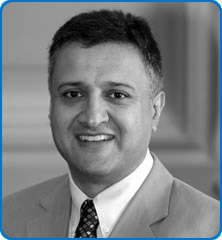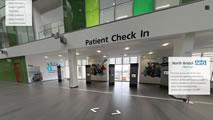We are a team of Registered Dietitians providing nutrition and dietetic services to patients at Southmead Hospital Bristol and the surrounding communities of Bristol and South Gloucestershire. Most of the dietitians have undertaken additional study and have experience and expertise in a specialist area of work in addition to undertaking general dietetic work.
Head of Nutrition and Dietetics
Katherine Barker
Specialties: Immunology
Email: katherine.barker@nbt.nhs.uk
Team Leaders
Kaylee Sayer – Speciality: Critical Care
Amy Greenhough – Speciality: Renal Team Lead
Lyndsey Francey – Speciality: Critical Care
Kathryn Campbell - Speciality: Neurosurgery and Student Lead
Gastroenterology
Bridie Watson – Gastroenterology and Eating Disorders Lead
Sarah McKenna – Gastroenterology Dietitian
Claire Downer – Specialist Dietitian
Laura Herlihy - Enteral Feeding Practitioner
Diabetes
Faye Cochrane - Diabetes Specialist Dietitian
Neurology/Neurosurgical
Sally Darby – Specialist Dietitian
Lindsey Milligan – Acute Stroke Care
Kathryn Campbell – Neurosurgery and Student Lead
Frances Greer – Neurosurgery and Critical Care
Emily Lovegrove – Neurology and Critical Care
Charlene De Jager – Neurology and Critical Care
Elena Bega - Acute Stroke Care
Bethlyn Coleby-Mulholland - Acute Stroke Care
Macmillan
Abi Nickless - Macmillan Specialist Dietitian
Suzy Owen - UGI Oncology, TPN, Catering
Metabolic Disorders
Suzanne Ford – Adult Metabolic Disease Lead
Simone Whiteway – Specialist Dietitian
General Medical
Ifeoluwa Olaosebikan – General Medical Dietitian
Nadia Osei Timah Kwabena – General Medical Dietitian
Clodagh Donlon – General Medical Dietitian and Renal
Jill Boyd – General Medical Dietitian
Critical care
Stephen Taylor – Critical Care and Research Lead
Danielle Milne – Critical Care
Frances Greer – Neurosurgery and Critical Care
Emily Lovegrove – Neurology and Critical Care
Georgia Kemp - Burns Care and Critical Care
Kate Vaughan– Bariatric, ICU and Respiratory
Daina Potjewijd - ICU and AMU
Burns
Georgia Kemp - Burns Care and Critical Care
Surgical
Claire Downer – Specialist Dietitian
Suzy Owen - Specialist Dietitian
Renal
Amy Greenhough – Renal Lead
Daisy Worthington - Renal Dietitian
Kiera Sneddon - Renal Dietitian
Fiona Hunter – Renal Dietitian
Clare Gallimore – Renal Dietitian
Rebecca Dunigan – Renal Dietitian
Monica Dinnall – Renal Dietitian
Cathy Grove – Renal Dietitian
Bariatrics
Kate Vaughan– Bariatric, ICU and Respiratory
Jen Dacombe – Bariatric Dietitian
Karen Coulman – Bariatric Dietitian
Marie Bird - Bariatric Dietitian
Rachel Elliott – Bariatric Dietitian
Neonatal
Vickie Bevan - NICU Dietitian
Admin Team
Carolyn Power – Admin Team Leader and Dietetic Assistant
Joanne Lindsay – Admin Clerk
Sinead Carmody - Admin Clerk
Dietetic Assistants
Eve Chan – Dietetic Assistant
Mahsa Jamalzadeh Yari – Dietetic Assistant
 GMC Number: 3467499
GMC Number: 3467499

